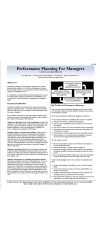Case study/examples on what’s wrong with the your “best practices”
Below are examples of an “internet savvy” marketer who makes all the mistakes you can make when commenting on LinkedIn. I bet you make them too. Explanations follow.

LinkedIn is the major social media platform for business oriented people. If you are like many others, you may post longer articles, and updates, but you probably believe that commenting on other’s posts is a good thing. And in fact it should be. However, if you are on LinkedIn for business or job reasons, my bet is you are making huge mistakes in how you comment on the platform. I’ve pulled some examples of poor comments for discussion purposes.
Take a look at the image above. These are all comments posted by an individual who has often complained about how ineffective social media has been for promoting her business and creating business results.
Let’s see how sharp you are. Go through each one and ask yourself:
Does this comment contribute to this individual’s business success?
Here’s a hint:
Think in terms of adding value.
Here’s another hint:
There are three major and obvious patterns illustrated in these comments that should be avoided.
The Schmoozing/Social Comment Diseases One and Two
In THE Prime Directive For Small Business’ Online Presence I map out the idea of adding value for potential readers and potential customers. That is, the more value you add (meeting the needs of readers/customers) the more likely you are to succeed.
There are different ways to add value, and of course, your content has to be tailored to the audience you want to reach. For the most part, if you help a person solve a problem, or think about something differently, they you’ve added value.
There is a second aspect that ties in to social media posting, and that is the social/schmoozing and acknowledging of someone else. Think of this as the “atta boys”, congratulations,, etc. BUT, these are contentless. There is no real information in such things. That’s not to say they are bad. They grease social interactions — i.e. the small talk.
However what they do not do is illustrate your expertise, skills, insights, knowledge and ability to help solve problems. That is the problem, and this is where posting and commenting on behalf of a business is different than commenting on Uncle Edgar’s Facebook post about his new Edsel.
You can see this style of commenting in our examples. In fact, this individual almost NEVER posts content that adds value in terms of solving customer or reader needs or wants. They are almost all about small talk, and/or they also suffer from an additional social malady….
Some people, both on and offline cannot help but bring every conversation back to themselves. I think sometimes small business people, particularly those that are struggling, do this more than others who are doing well, and there’s a sense of desperation that comes across. At in-person social gatherings these people are labelled boorish, yet this style of communicating is quite common on social media.
Once again, there is usually no added value involved. You can see this in many of the comments to the right. Notice how (it’s a bit hard because the context is removed) the commenter moves quickly to the “I”. Her posts are almost all like that, and apart from adding value, they often come across as self-promotional and self centered. That’s NOT the recipe to enhance one’s reputation on social media.
Where’s the value there. One should not consistently make one’s comments about oneself. Once in a while is fine. As a consistent pattern, no.
The Third Disease: Opinions and Controversy Unrelated To Your Business
The third problem is, by and large absent from our case study. Look at the last comment (it’s three paragraphs) that focuses on bikini pictures. This person often repeats that meme in her posts, and while that’s certainly her prerogative, the question is does it actually add value. It doesn’t. Neither does most content that involves personal opinions unrelated to one’s business, and particularly controversial comments about things like politics. And just to add, since we’re exploring this, NEGATIVITY is a major problem.
Conclusion
These are very common errors that I see everyday online, and that damage or fail to add to the positive profile of a small business. If you exhibit a pattern of committing these errors, you are more than likely going to believe that social media “doesn’t work”. That’s because, quite frankly, you don’t understand it, or the Psychology of communication, or you are simply too self-centered to start ADDING VALUE for others.
Have you got ideas to supercharge commenting on social media? Drop them in the comments.






